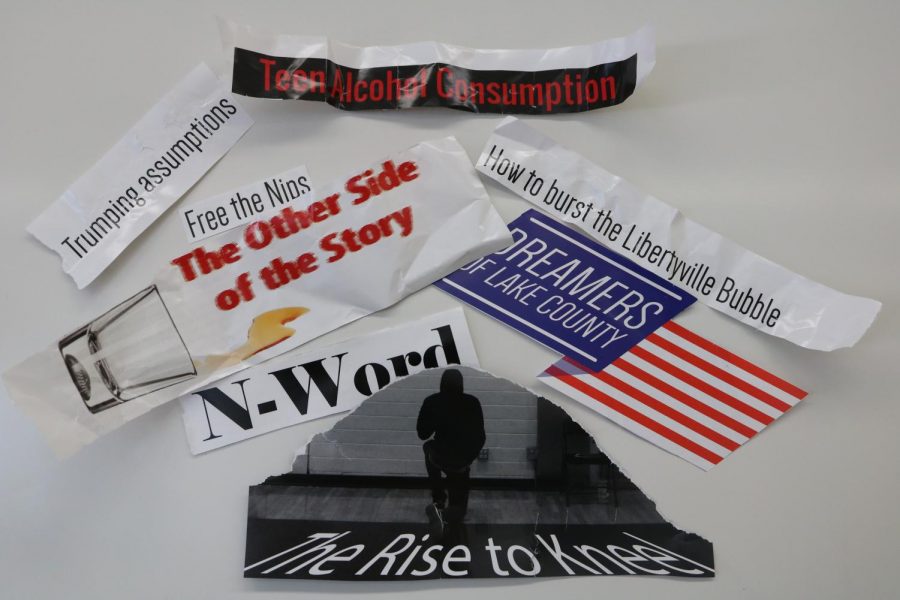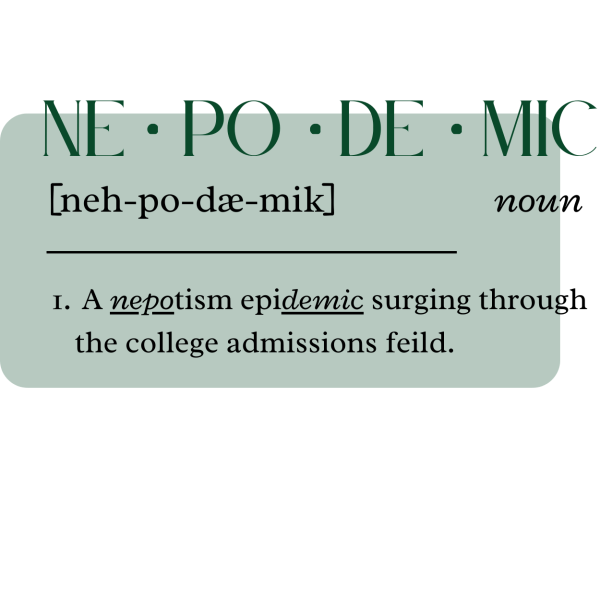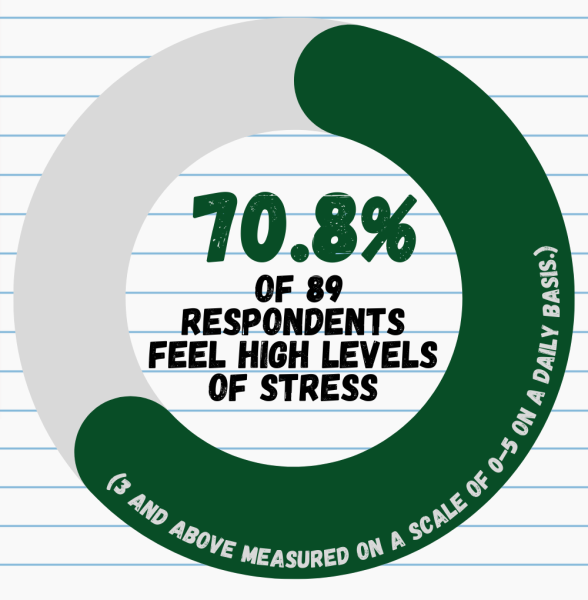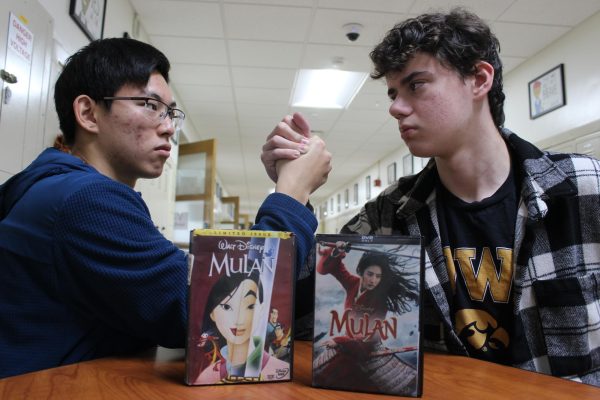Refuting our reputation
The headlines above represent Drops Of Ink’s most “controversial” stories from the past two years, according to critics of DOI.
After every Drops of Ink magazine comes out, we throw a small party during our class period. It’s complete with food, reading and raving about the newest issue and excessive compliments given to each other for the hard work put into each aspect of the issue. There is a great amount of pride that we have for each issue. However, there are always stories exchanged among staff members that go something like, “I saw a student throw away our issue in the trash!” or “Someone spent all of last period complaining about Drops of Ink!” It’s a shame to hear when all of our efforts are unjustly criticized.
Everyone is entitled to their own opinion, of course. If you don’t like our magazine, that is O.K. I realize that not every person can be a fan of our work, and it’s not our job to please everyone — an impossible task anyway. Nevertheless, Drops of Ink gets a considerable amount of disapproval, not all of which is deserved.
In preparation for writing this column, I talked to multiple sources, including those who notoriously dislike DOI, to understand the reasons behind their disapproval. With this column, it is my intention to provide some clarity on the main issues some students have.
The most common complaint about Drops of Ink is that we are too liberally biased. Yes, the majority of our staff is liberal. Through a survey completed by DOI members, I learned that nearly two-thirds of our staff characterize themselves as liberals; a few students call themselves conservatives and more than one-fifth of staff members characterize themselves as moderate (it should also be noted that a few students answered that they did not know enough or did not care about their political preference). I can see where, based on these numbers, it would seem that our publication’s stories are skewed.
However, being biased or reporting on “only left stories” is not, by any means, our intention. During the story selection process, editors don’t deliberately choose stories that appeal to liberals and dismiss stories that appeal to conservatives. For example, people may see the story “Dreamers of Lake County” from our November issue focused on diversity as liberally biased; however, the story discussed how the Deferred Action for Childhood Arrivals program directly affects a student at LHS and it was fact-based; there was no part of the story that said it was in support for or against DACA; it was just an exploration of it.
Many articles people point out bias in are opinion pieces. These columns are written by individuals to express their personal opinions on certain ideas or issues (like this one). These opinions are not reflective of the publication as a whole. However, staff editorials, written by a single writer whose name and opinions are not reflected in the piece, contain the (often-differing) views of the staff as a whole. In news, feature and sports stories, we make every effort to remain objective in our reporting and writing, just like professional journalists. Stories go through three editors before they are published, two student editors and our adviser. Any hints of bias in these stories are taken out during those edits.
Some people also argue that our publication makes our school look bad by reporting on issues such as underage drinking and sexting, and that, as a high school newspaper, we should be promoting Libertyville High School. Solely painting the school in a positive light, however, is not our mission. Drops of Ink’s mission is to “deliver news, information and entertainment that is relevant to our readership,” as stated in our editorial policy. Our job is to inform; it is not to promote any person, place or thing. We aren’t going to only cover “fluff,” or stories that are merely entertainment. Fluffy content, like online quizzes or stories about the Homecoming parade, isn’t going to enlighten anyone, and they aren’t going to make any differences at our school. Although there is a time, place and outlet for these kinds of stories, we aren’t going to only cover surface-level topics for the sake of not being controversial. Some kids smoke and drink and sext, and it often isn’t talked about. The purpose behind writing stories seen as “controversial” is not to stir up drama, but to talk about the things that aren’t talked about, to spark conversations and possibly even change.
With this being said, DOI is a journalism class. Many students in DOI are considering going into journalism, communications, multimedia, photography, graphic design and other related fields as a career path and are starting to gain experience here. How will they know that’s what they want to do if they are only working on fluff?
On the other hand, some believe we aren’t serious enough and that our newspaper doesn’t cover things that actually matter. To that claim, I say the same thing as before: we are here to report and inform on matters that we, as a staff, deem as being relevant to our readership and impactful within our community. I think sexual assault and mental health are important enough matters.
The week after each issue is published, we hold a period-long group discussion in which we go through the magazine, page by page, and discuss not only the things done well, but the mistakes that were made. We see where the writing could’ve been improved in an introduction or where a story was under-reported, having only two sources. Mistakes are made, but we learn and we grow. While we do try our hardest to be accurate and objective, I acknowledge that sometimes we miss the mark. I also ask that you give us a break: we are only high schoolers, but at least we are trying. We want to improve and we do that by learning from our errors. That’s what journalists do (even professional ones!).
It’s fine if you don’t like our publication. In the end, we can’t please everyone, but we won’t stop reporting on relevant and impactful news, regardless of how “controversial” it may seem.















Student Journalists • Mar 20, 2018 at 3:50 pm
Our news staff reads your website because we like to see what other high schools are reporting about, and our adviser makes us, which isn’t an issue because we learn a lot from your work. Keep it up!
The Edition,
La Cueva HS
Albuquerque
Julie Kloser • Feb 16, 2018 at 7:51 am
Keep doing what you’re doing. I love the DOI publications! You should be proud of your work.
Signed,
An admiring parent (unbiased…neither of my children are involved with DOI)